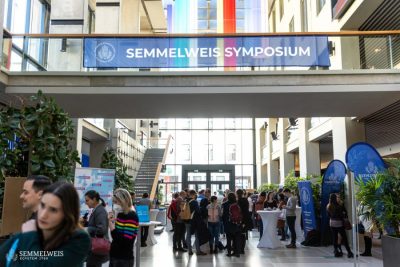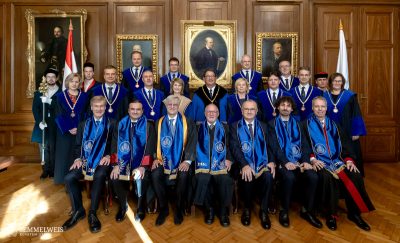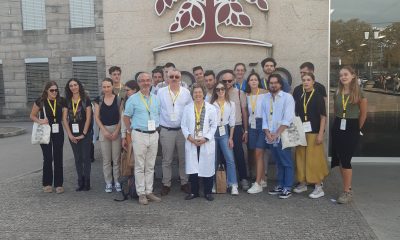 Regarding the January meeting in Heidelberg, Dr. Béla Merkely said that Semmelweis University has been in cooperation for decades with the oldest German university, whose rector, Dr. Bernhard Eitel, presented the ongoing developments in the institution to the Hungarian delegation. Although Rector Eitel is a geologist, he strongly approves of the outstanding importance of medical science today. ‘It creates a significant opportunity for innovation and is a top priority for the general public as well,’ commented Dr. Béla Merkely. He added that a number of developments are being carried out at Heidelberg University’s internationally renowned patient care facilities in Heidelberg and Manheim, aimed at strengthening medical science. Although there is no technical faculty at the university, they are trying to integrate all technical content (e.g. bioinformatics, biotechnology) required for patient care and innovation into the university and operate as a multi-faculty unit, the Rector pointed out.
Regarding the January meeting in Heidelberg, Dr. Béla Merkely said that Semmelweis University has been in cooperation for decades with the oldest German university, whose rector, Dr. Bernhard Eitel, presented the ongoing developments in the institution to the Hungarian delegation. Although Rector Eitel is a geologist, he strongly approves of the outstanding importance of medical science today. ‘It creates a significant opportunity for innovation and is a top priority for the general public as well,’ commented Dr. Béla Merkely. He added that a number of developments are being carried out at Heidelberg University’s internationally renowned patient care facilities in Heidelberg and Manheim, aimed at strengthening medical science. Although there is no technical faculty at the university, they are trying to integrate all technical content (e.g. bioinformatics, biotechnology) required for patient care and innovation into the university and operate as a multi-faculty unit, the Rector pointed out.
In addition to the developments, the Rector of Heidelberg University presented further good examples, such as the creation of well usable study spaces attractive to young people, added Dr. Béla Merkely. During the meeting, professional policy issues and further opportunities for cooperation were also raised. Professor Bernhard Eitel welcomed the plan to introduce the Semmelweis model, that is, operation within a performance-based foundation structure. In Germany, there is a long tradition of opportunities provided by foundations to complement and reinforce state-run operations, said the rector of Semmelweis University.
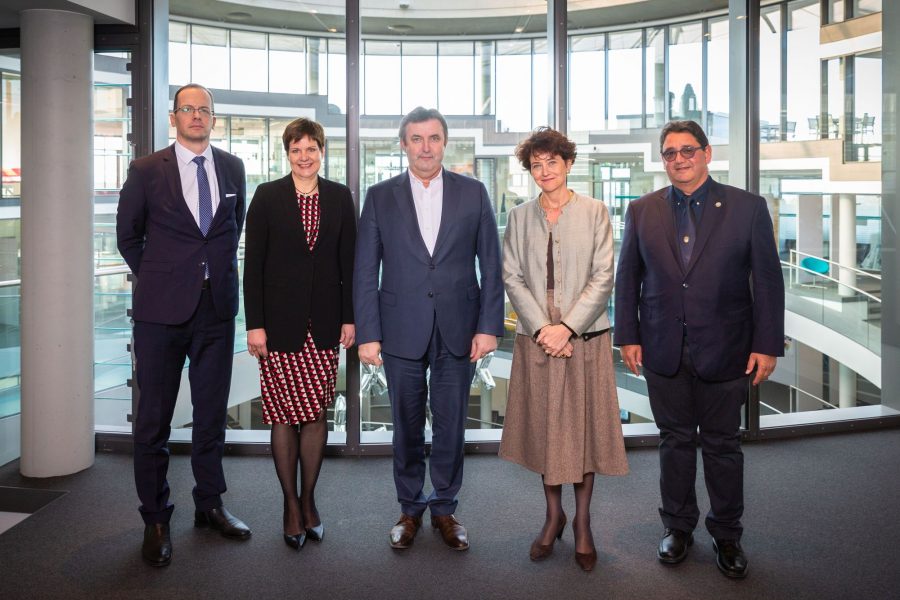
The delegation also visited the European Molecular Biology Laboratory (EMBL), where one of the main topics of discussion was the HCEMM project funded by the Teaming sub-programme of Horizon 2020. In this programme, the University of Szeged, the Biological Research Centre in Szeged and the EMBL are working together to establish a centre of excellence in molecular biology in Szeged.
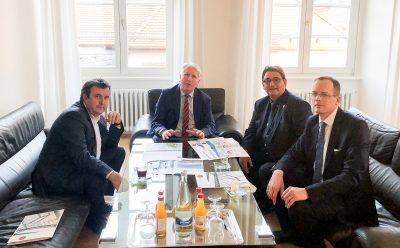 Hungary joined EMBL in 2017 as a full member in order to give Hungarian researchers access to world-class infrastructure, training and research fellowships, and thus participate in the world’s leading life sciences research. The Hungarian organizations are currently working together with EMBL in 20 projects in the framework of Horizon 2020, mainly in the area of research infrastructure and healthcare, for which they have received nearly 20 million euros in grants, according to the Ministry for Innovation and Technology. Dr. László Palkovics emphasized that successful cooperation with EMBL can contribute to increasing the international competitiveness of the Hungarian medical and health science research and innovation.
Hungary joined EMBL in 2017 as a full member in order to give Hungarian researchers access to world-class infrastructure, training and research fellowships, and thus participate in the world’s leading life sciences research. The Hungarian organizations are currently working together with EMBL in 20 projects in the framework of Horizon 2020, mainly in the area of research infrastructure and healthcare, for which they have received nearly 20 million euros in grants, according to the Ministry for Innovation and Technology. Dr. László Palkovics emphasized that successful cooperation with EMBL can contribute to increasing the international competitiveness of the Hungarian medical and health science research and innovation.
Eszter Keresztes
Translation: Diána Módos
Photo: Kinga Lubowiecka – EMBL (source: kormany.hu)
